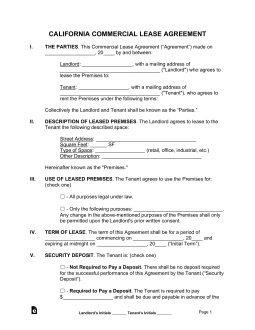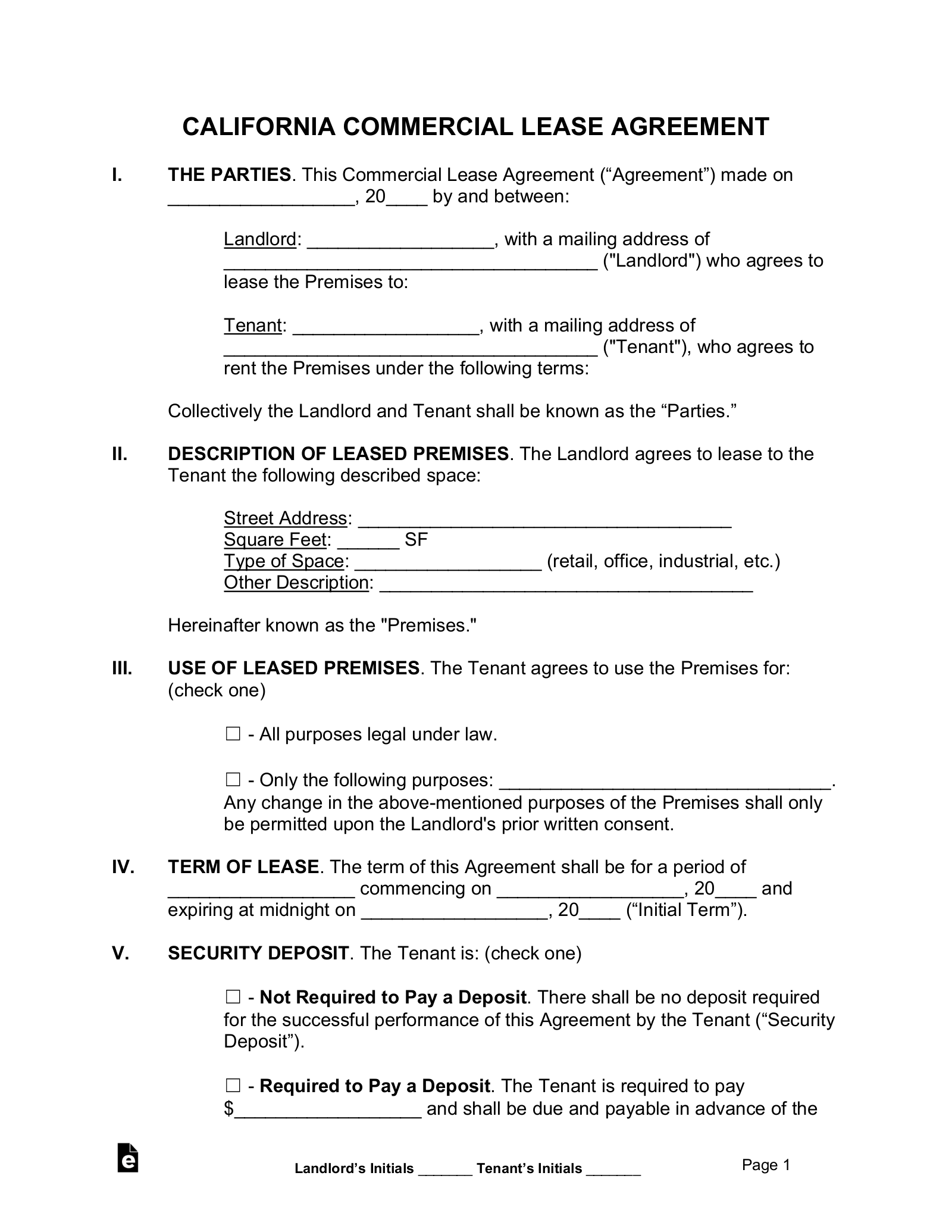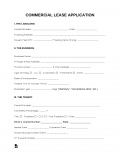Updated November 05, 2023
A California commercial lease agreement acts as a binding contract between the landlord and a business tenant who is renting the space for non-residential use, such as retail, office space, industrial, or hospitality. The document outlines the terms and conditions of the lease, including rent payment, security deposit, length of the lease, and penalties for breaching the contract. Once signed by both parties, the agreement becomes a legally binding contract that is enforceable in a court of law. Because commercial tenants do not have the same rights and protections as residential tenants, it is highly recommended that an attorney review the agreement before it is signed.
Laws — § 7191 – California Business and Professions Code; § 55.53 – California Assembly Bill 2873; Section 1938 – California Civil Code
Related Forms
Download: PDF, MS Word, ODT




